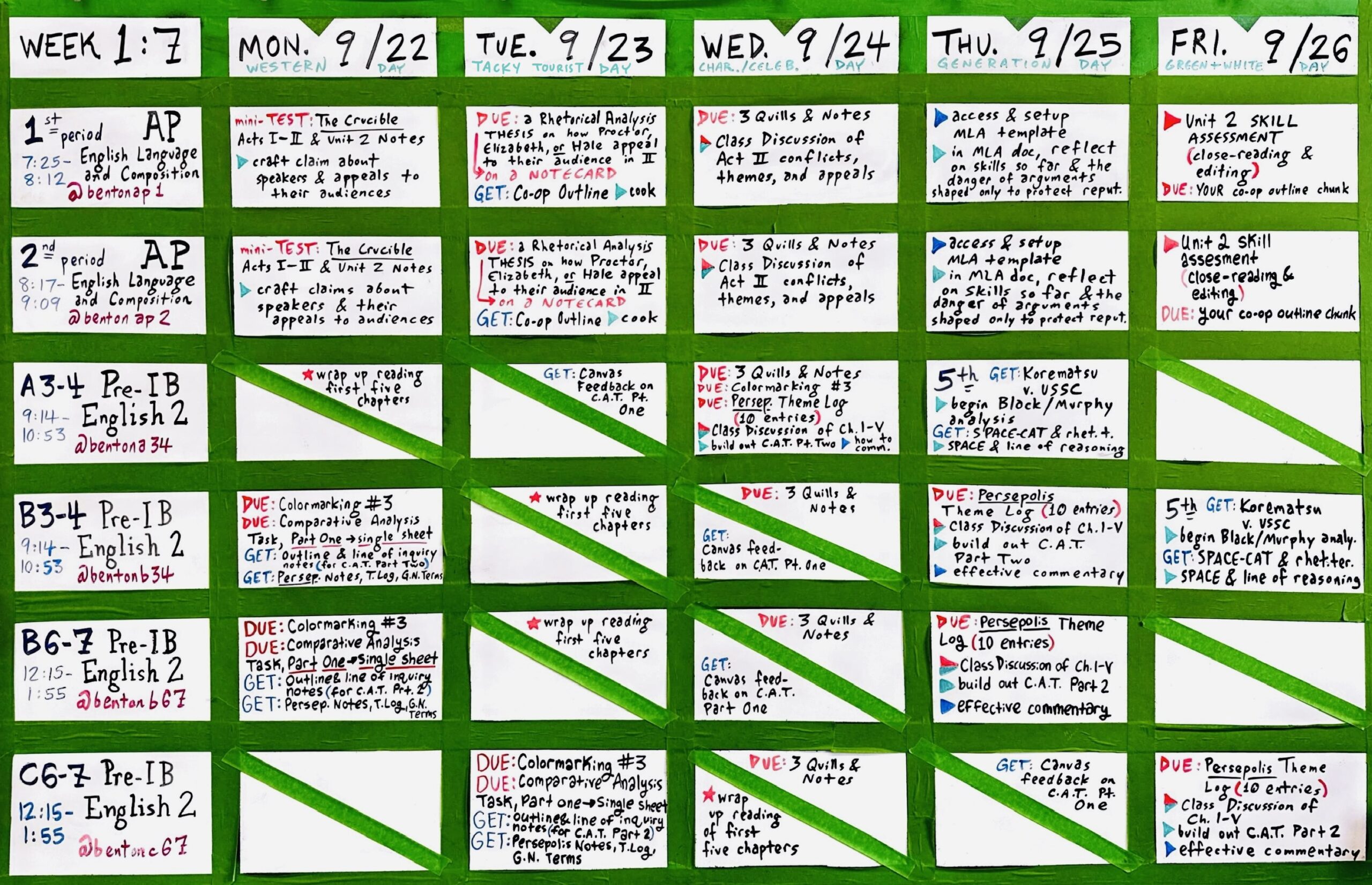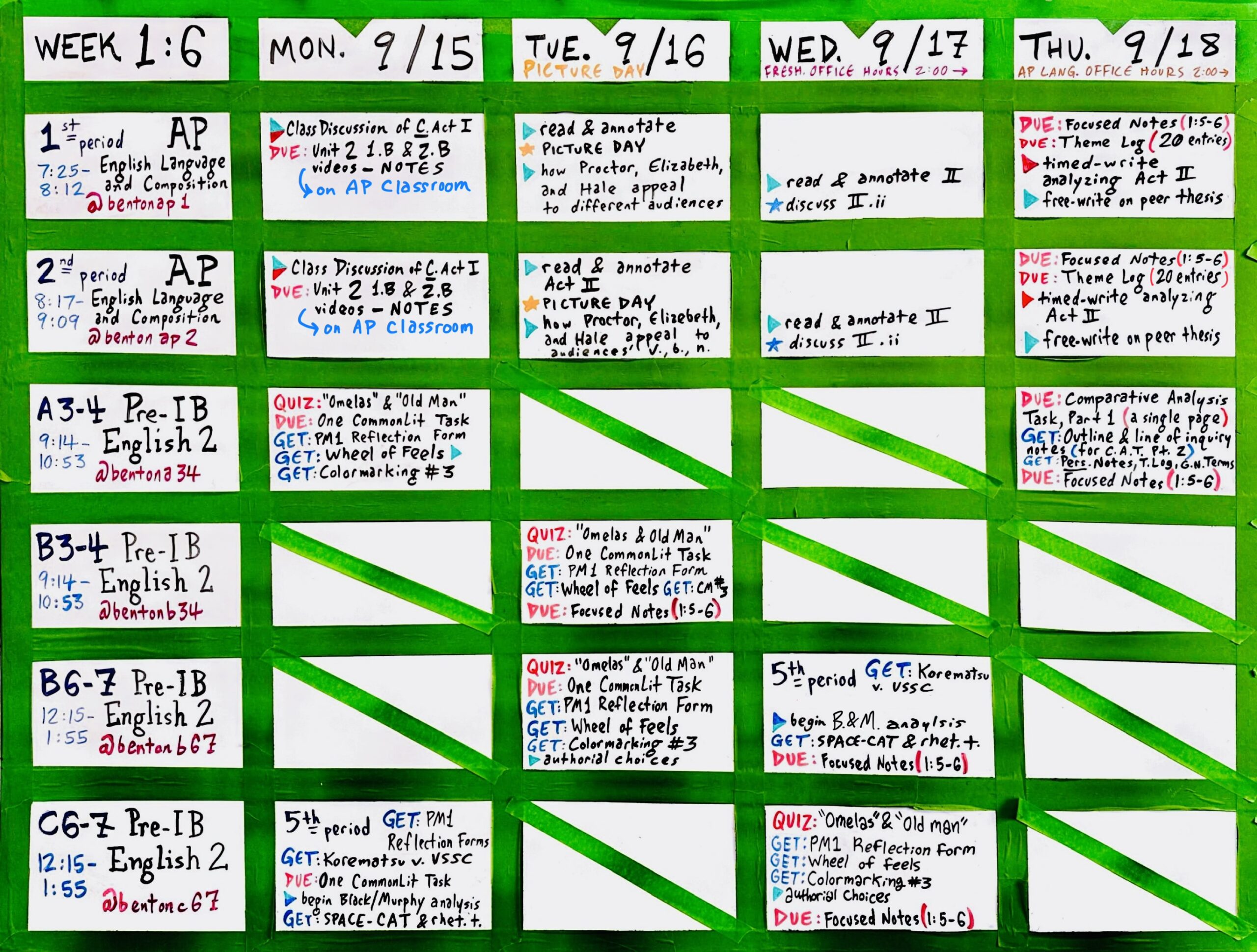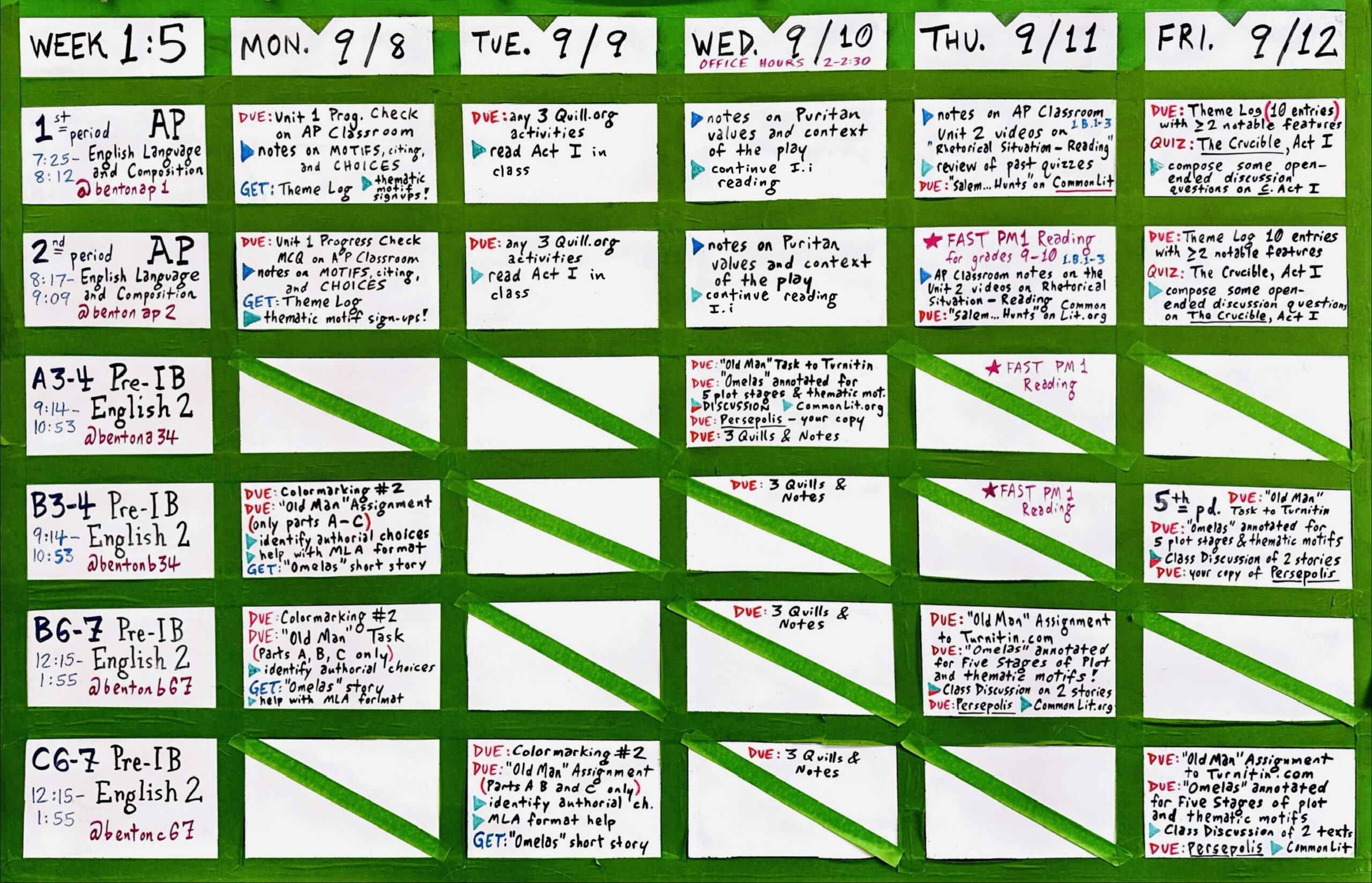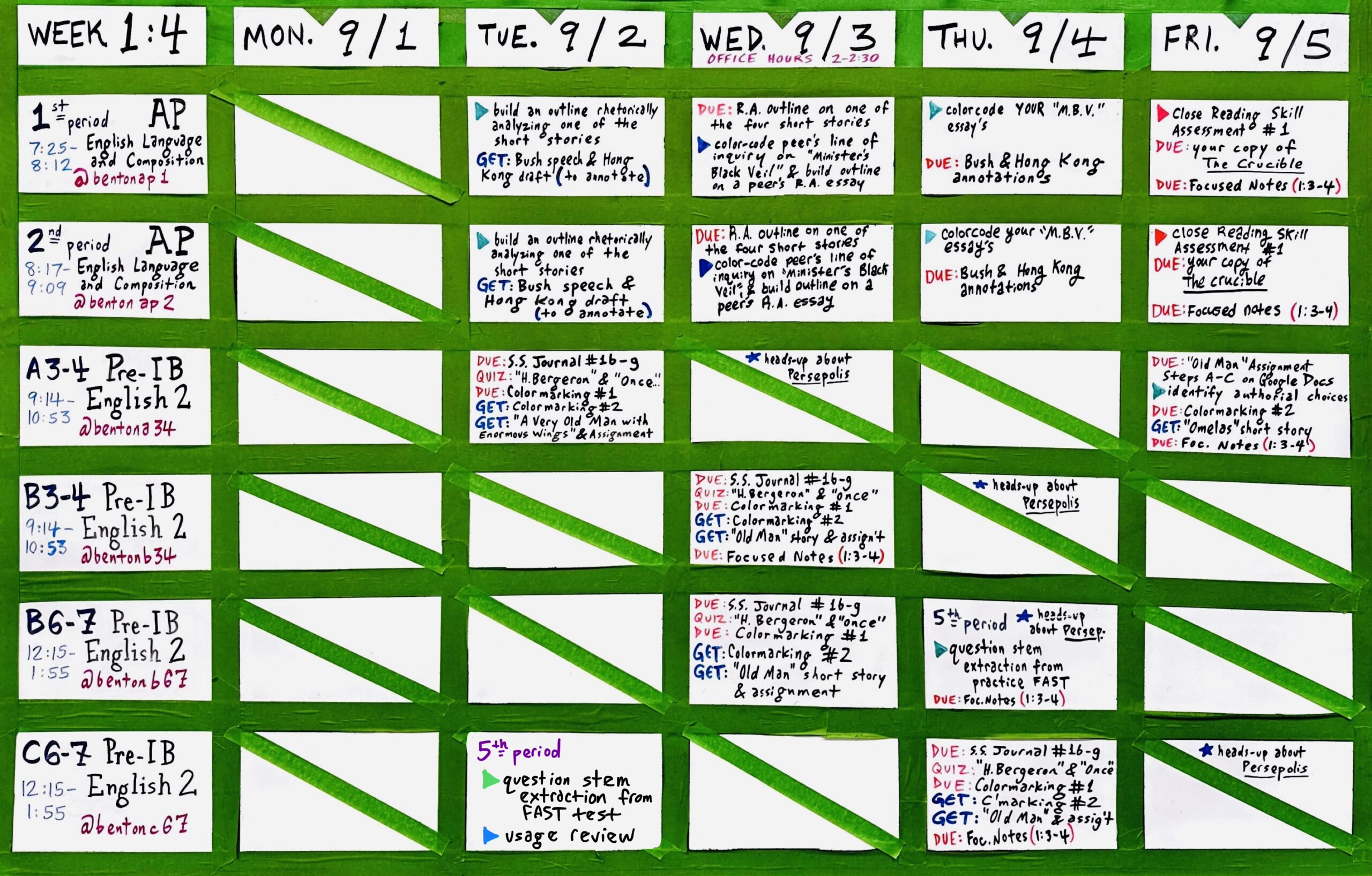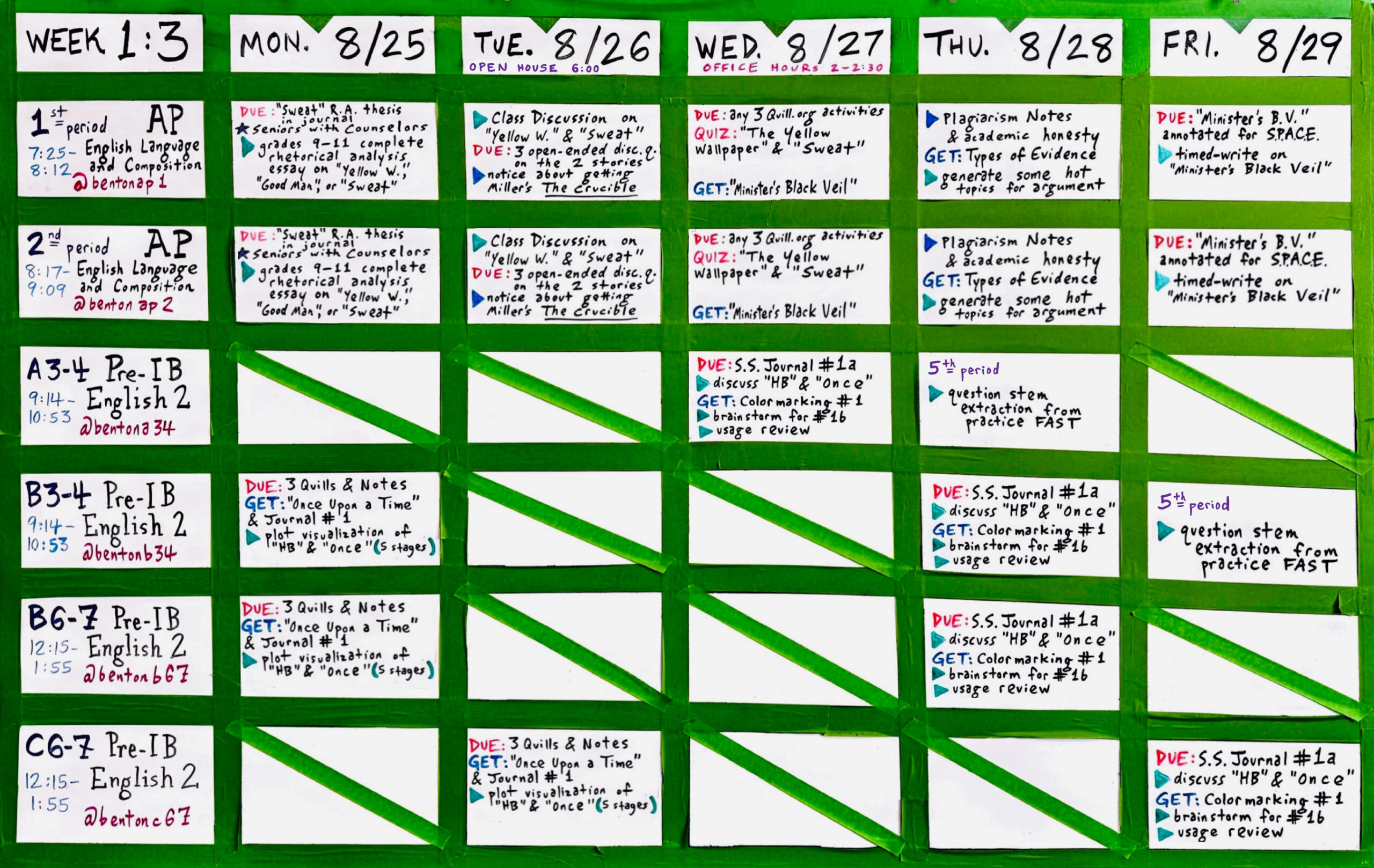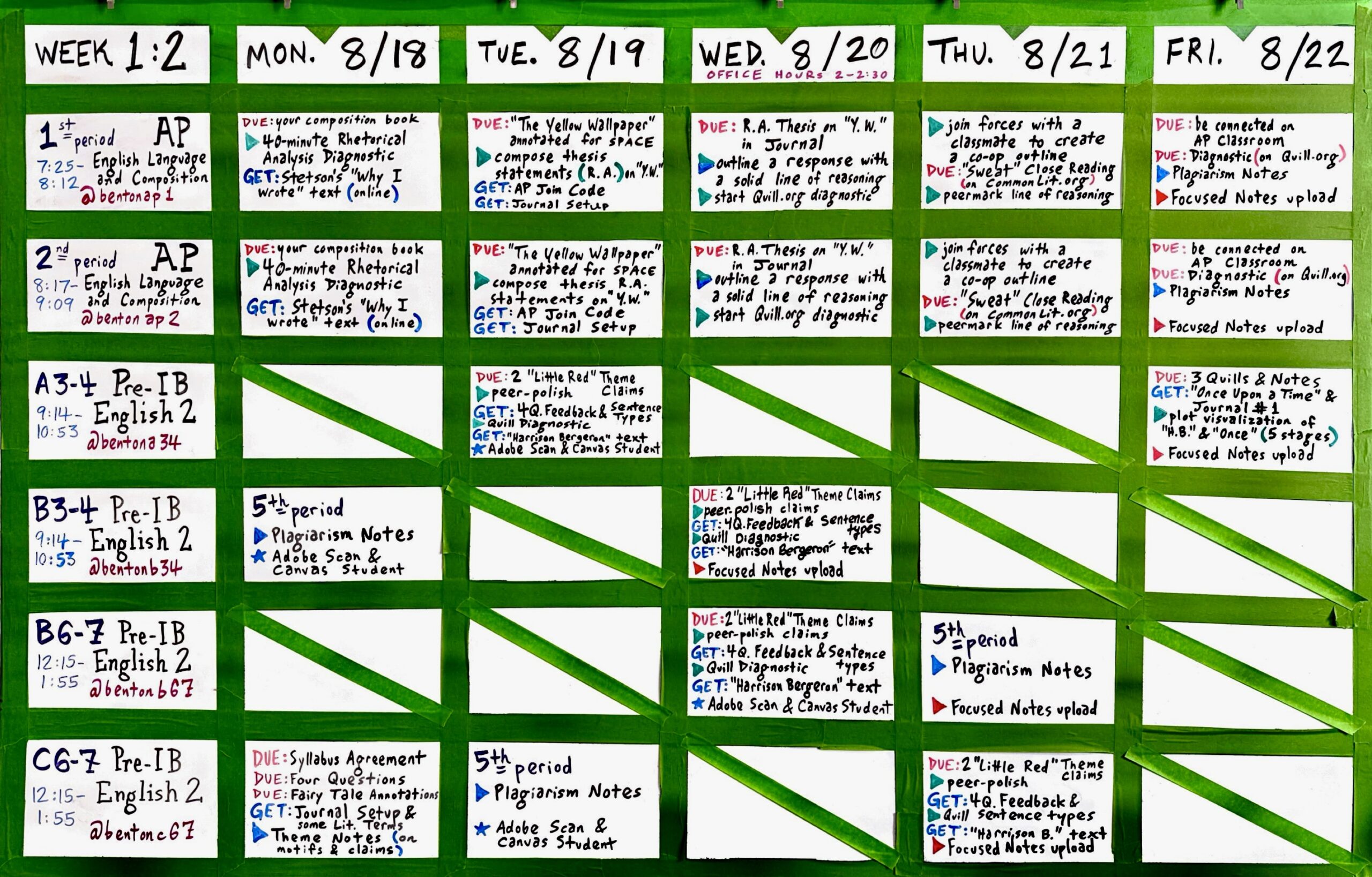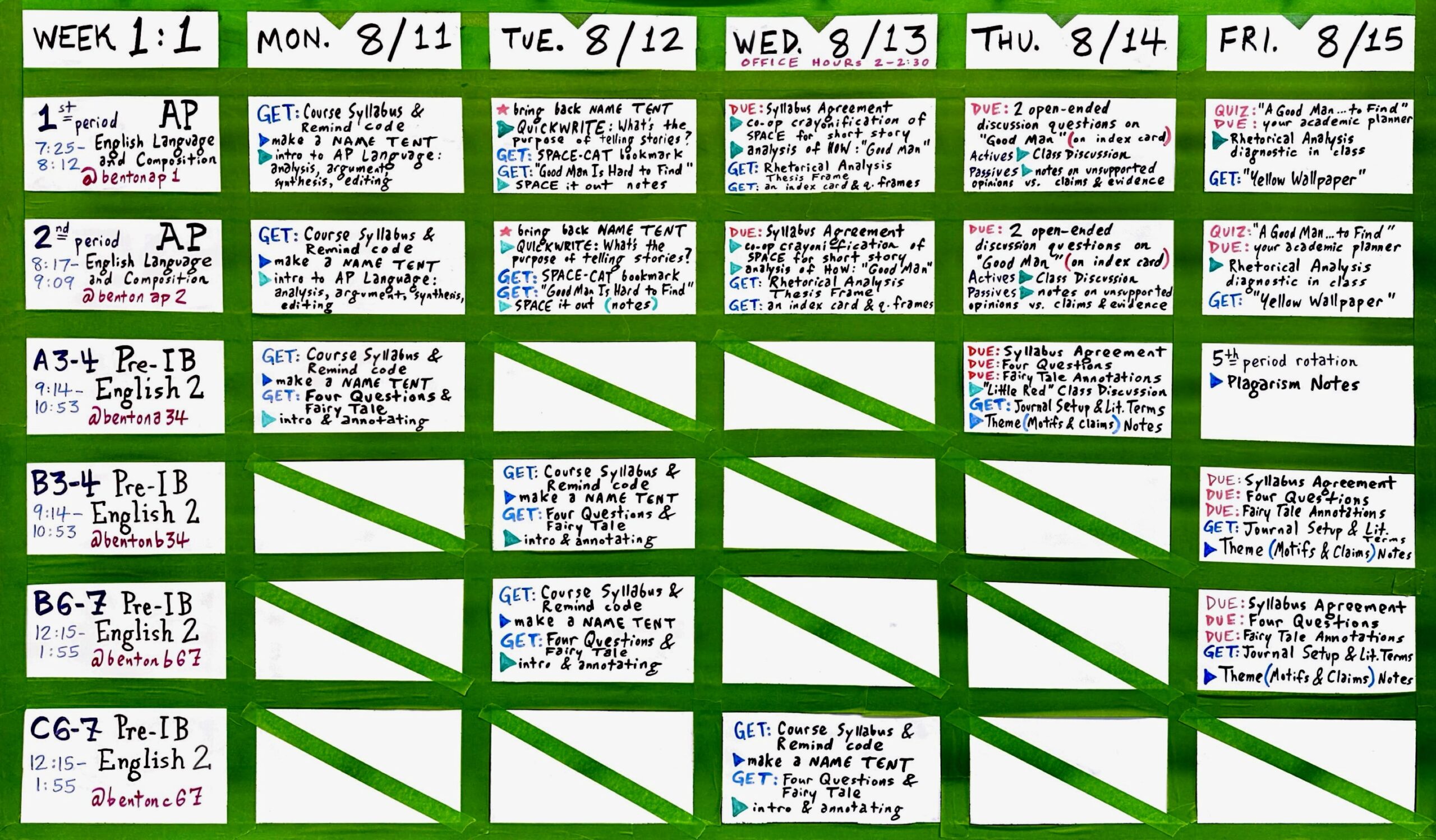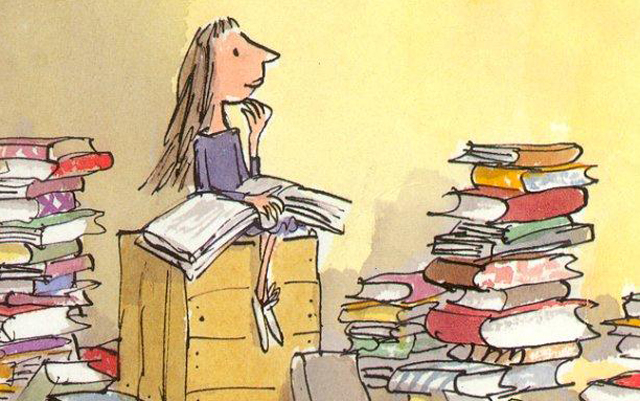AP Language: MLA Template, Thesis Frames, SPACE-CAT Bookmark, Verbs for Analysis, Wheel of Feels, Rhetorical Terms, Blank Outline, Types of Evidence, Audience Breakdown (Values, Beliefs, Needs) / The Crucible: Pre-notes, Theme Log, Act I, Act II, Full Play (en Español)
IB Freshmen: PM1 Reflection Form, Colormarking #3, Analytical Verbs, Weaving & Citing, Transitions & Commentary, Wheel of Feels / Short Stories: “Harrison Bergeron”, “Once Upon a Time”, “A Very Old Man with Enormous Wings”, “The Ones Who Walk Away from Omelas”, Comparative Analysis Task / Korematsu: Black & Murphy Task, SPACE-CAT & Rhetorical Terms, TEDed Video, US Gov’t Video, Takei’s They Called Us Enemy Extracts / Persepolis: Info Card, E-text, Graphic Novel Features & Terminology, Theme Log, Notes
IB Diploma Support: Rotation Calendar & 5th Period Rotations, DS Contract, IB Academic Guidelines, Say Something Anonymous Reporting System / Research: Gale Databases, Google Scholar, JSTOR, Sci-Hub / EEs: Full EE Guide, MLA Template, MLA Sample Paper, EE Rubric, English EE Scoring, Prescribed Reading List, Sample EEs & Scores

